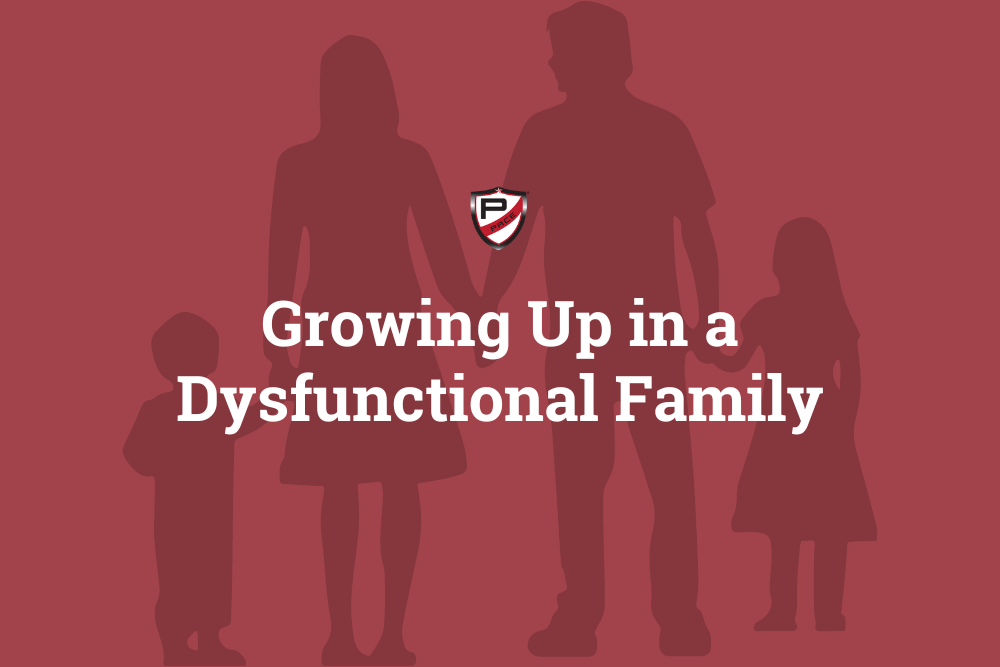No family is perfect, but those who have a severely dysfunctional family are at a greater risk of developing mental health and substance use disorders. Children who have relationships that lack consistency often go without the emotional support they need for development. The effects of growing up in this type of environment can leave a lasting impact on children throughout their teen and adult years, especially if they don’t receive the help that they need.
What Is a Dysfunctional Family?
Dysfunction can come as a result of abuse, neglect, emotional unavailability, or mental health issues amongst members of the family. Children who do not have their emotional or physical needs met often struggle to feel any sense of security. Those who experience these issues may not feel like they have anyone to talk to or feel protective of relatives. As a result, children often suffer in silence, internalizing the challenges they face. Toxic family structures can involve members within or outside of the home. Distant parents, grandparents, and extended relatives can all have an impact on the child’s emotions.
Growing Up in a Toxic Family Dynamic
It’s nearly impossible to grow up in this environment without it affecting a person’s emotions and behaviors. Some of the most common effects of a dysfunctional family include:
- Feelings of isolation
- Approval-seeking
- Anxiety and intimidation (especially related to authority)
- Feelings of guilt, hopelessness, or helplessness
- Challenges with intimacy
- Substance misuse, addiction
- Inability to process emotions properly
Every person reacts differently to challenging situations, so your teen may display behavior outside of these listed. As a whole, teens and young adults who have been part of unhealthy relationships will likely exhibit challenges with expressing emotions, regulating behavior, and utilizing healthy coping skills.
Because they’ve learned how to respond to difficult circumstances on the basis of survival, their behavior is consistent with the dysfunctional environment. For example, men who experienced manipulation in their early years are more likely to be excessively agreeable at the cost of their own needs. Adolescents who were victims of physical abuse may lash out in a similar way when they are frustrated. Though not healthy, these responses are natural given their past experiences.
Mental Health Issues and Family Dysfunction
Teens and young adults who were exposed to an unhealthy environment at an early age exhibit learned behaviors that can develop into complex mental health issues. Those who experienced trauma connected with a family member may fear this person, resulting in anxiety and stress responses. Any type of trauma can lead to post-traumatic stress disorder which often brings flashbacks, difficulty sleeping, and avoidance of situations. Depression is common for men who experienced trauma, especially if they grew up believing they couldn’t talk about their emotions. Even after their situation changes, these effects can continue.
Intensive Mental Health Treatment for Young Men
At PACE Recovery Center, we have seen how family dysfunction specifically affects young men. These teens and young adults often struggle with expressing and managing emotions, but our mental health treatment program supports them every step of the way. Our residential program offers intensive treatment with trauma-focused care, so they can process difficult family dynamics from their past. Many also turn to substance use to cope with their negative feelings. Because of this, we offer addiction and dual-diagnosis treatment to help each young man manage both diagnoses concurrently. If you or a young man you love would benefit from treatment for a mental health or substance use disorder, contact our admissions team today to learn about our programs.
Reference:
Minullina, A.. (2018). Psychological Trauma Of Children Of Dysfunctional Families. 65-74. 10.15405/epsbs.2018.09.8.



